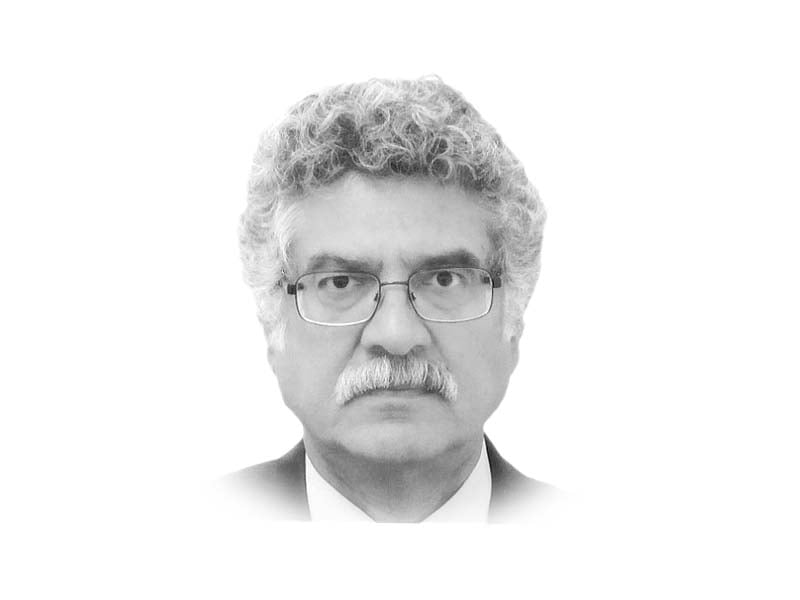
The aggressive American campaign in collusion with the Indians, using a mixture of incentives and pressure, to bring NSG members on board was sustained and relentless. Even the NSG Chair, Ambassador Song of South Korea, and the previous Chair, Ambassador Grossi of Argentina, were willingly co-opted to pave the way for India.
In their eagerness to appease Washington and New Delhi, both Song and Grossi went so far to violate the very basis of their mandate, given to them by the Seoul NSG Plenary meeting in June 2016, to engage in a transparent consultation process with all NSG governments to develop objective and equitable membership criteria for Non-NPT member states. Instead, they engaged secretly and surreptitiously with selected countries, mainly in India’s favour, to develop membership criteria. They not only failed to take China’s views into consideration despite the primary role being played by Beijing, but even ensured that the substantive criteria that they proposed placed no new requirements for India to fulfil.

The proposals have now been uncovered by several public sources, including Bloomberg News and the US-based Arms Control Association. They include undertakings already given by India to obtain the exemption from full-scope safeguards given at American behest in 2008. As Daryl Kimball of the Arms Control Association points out “this formula would not require India to take any additional non-proliferation commitments beyond the steps to which it consented in September 2008” for the India specific exemption for civil nuclear trade. He adds that “any further country specific exemption from NSG guidelines for trade and/or membership without compensating steps to strengthen non-proliferation and disarmament would increase nuclear dangers in South Asia, and weaken the NSG and the broader nuclear non-proliferation regime”.
The worst aspect from Pakistan’s perspective of this biased and preferential Grossi-Song formula is that it is designed to harm Pakistan’s application for NSG membership. For instance, it advocates a sequential rather than simultaneous approach to membership by India and Pakistan which is obvious from the requirement that India, after becoming a member, would not object to membership requests from other countries — ie., Pakistan. Even if India were to give such a commitment it would not be worth the paper it would be written on. Moreover, there is absolutely no justification for taking such a sequential approach since Pakistan’s credentials for membership are equally good if not better than India’s and therefore, both country’s applications should be considered concurrently and simultaneously.
Even worse is the Grossi-Song stipulation that even when Pakistan is admitted as a member, it will still need to obtain a waiver or exemption to be eligible for civilian nuclear cooperation, which potentially can be blocked by any NSG member, most likely India if it can get in the NSG.
It is not surprising, therefore, that several countries like China, Turkey, New Zealand, Brazil, Ireland, Austria, Belarus, Italy, Switzerland among others have raised objections to the proposed criteria developed by the Grossi-Song duo at Indo-American instigation. They have not only questioned the procedural aspects such as lack of transparency and selective engagement but also substantively the clear absence of impartiality and objectivity of the proposal. Even Russia, a close friend of India, has weighed in by calling for greater transparency and the need for due process of consultations.
Forced by this negative backlash, the Chair has now postponed the scheduled December informal NSG meeting till January-February 2017. During this period he intends to engage in further consultations in an effort to develop consensus — the only basis on which a decision can be made by the NSG.
Meanwhile, India has also reportedly decided to ask for a pause in view of the negative response to the Grossi-Song proposal. Some realistic observers in India are also questioning the merits of pushing for NSG membership despite the clear opposition, pointing out that the 2008 waiver should suffice.
For its part, the Obama administration has recalled its team from Vienna, the NSG Headquarters, recognising that it will not be able to fulfil its promise to its Indian friends during the few days it has left in office. Now it will be up to the next US administration to decide whether or not to push for Indian NSG membership.
For now, Pakistan has scored a tactical success by working with principled countries to prevent yet another preferential waiver exclusively for India. But the struggle for equitable and impartial treatment as an aspirant for NSG membership is not yet over for Pakistan.
Published in The Express Tribune, December 31st, 2016.
Like Opinion & Editorial on Facebook, follow @ETOpEd on Twitter to receive all updates on all our daily pieces.












COMMENTS (5)
Comments are moderated and generally will be posted if they are on-topic and not abusive.
For more information, please see our Comments FAQ